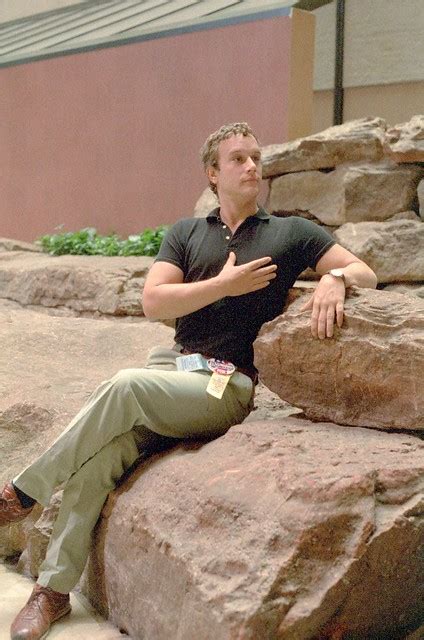A Quote by Peter De Vries
What we are assigned to bear is in a sense a measure of our stature.
Related Quotes
What do we measure when we measure time? The gloomy answer from Hawking, one of our most implacably cheerful scientists, is that we measure entropy. We measure changes and those changes are all for the worse. We measure increasing disorder. Life is hard, says science, and constancy is the greatest of miracles.
He's the best of us. The best of our best, the best that each of us will ever build or ever love. So pray for this Guardian of our growth and choose him well, for if he be not truly blessed, then our designs are surely frivolous and our future but a tragic waste of hope. Bless our best and adore for he doth bear our measure to the Cosmos.
The Idols of Tribe have their foundation in human nature itself, and in the tribe or race of men. For it is a false assertion that the sense of man is the measure of things. On the contrary, all perceptions as well of the sense as of the mind are according to the measure of the individual and not according to the measure of the universe. And the human understanding is like a false mirror, which, receiving rays irregularly, distorts and discolors the nature of things by mingling its own nature with it.







































